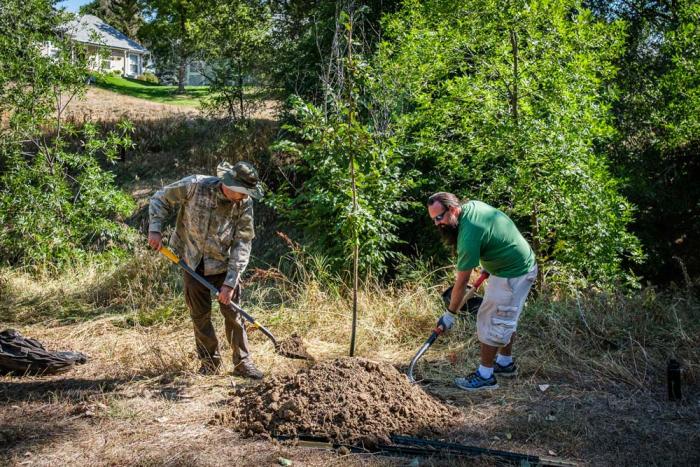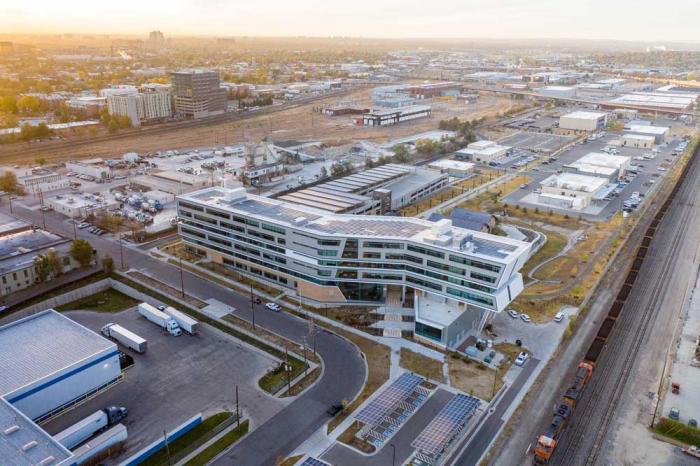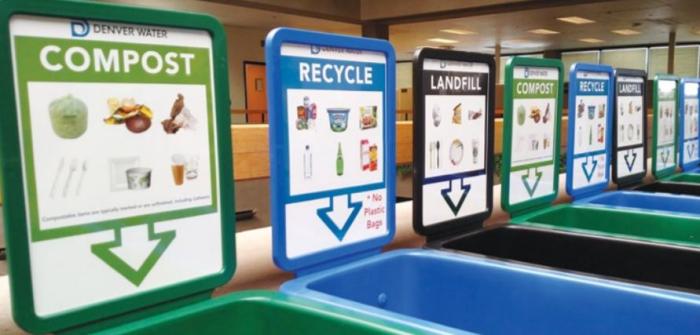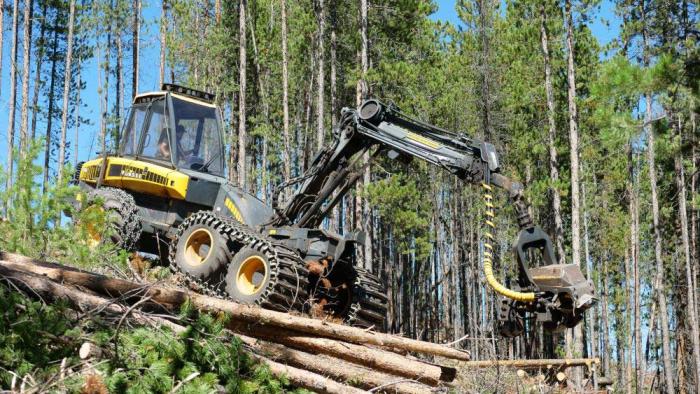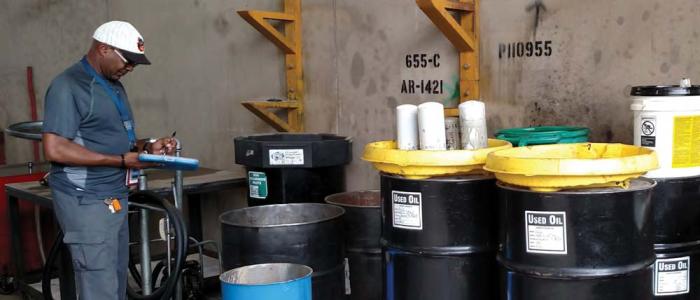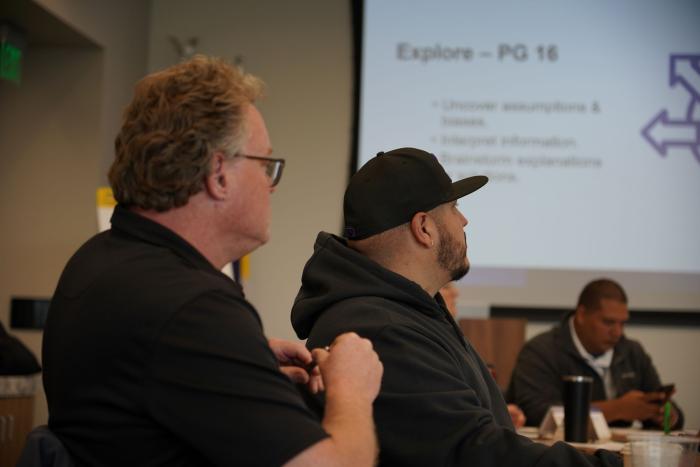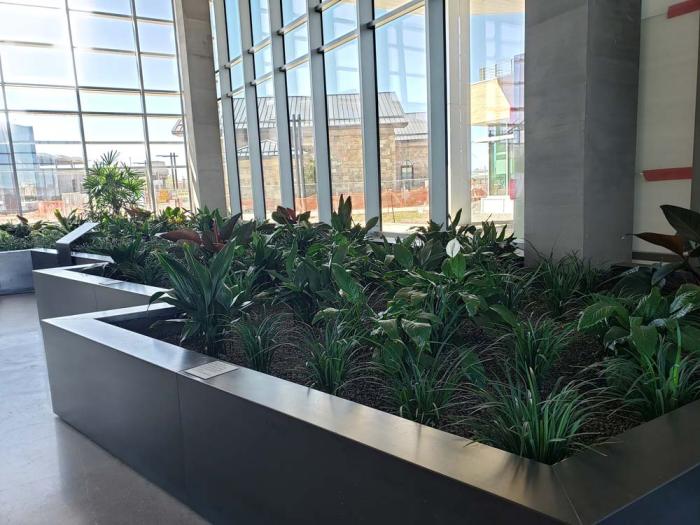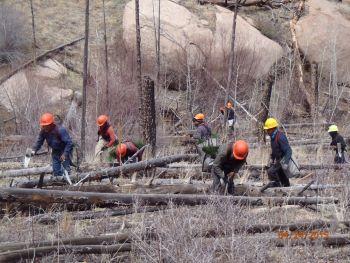Who Are We?
As a major water provider in the West, Denver Water views itself as having a special responsibility to the environment. It is a responsibility we take very seriously. We incorporate it into both our strategic thinking and daily operations.
We view ourselves as stewards of the environment. It is an ethic and value that runs deep in our organization. It is inherent in everything we do because our infrastructure is not just our pipes and reservoirs — it is also millions of acres of Colorado forests and thousands of miles of rivers and streams.
Our environmental commitment also stems from the preciousness of the resource with which we work. Water is essential to making Colorado beautiful, and to ensuring the quality of life we enjoy. Yet it is scarce in our state. And demands for it are intensifying.
With that understanding, Denver Water’s highest responsibility remains to serve 1.5 million people today and a growing population in the future. We strive to do so while minimizing our environmental footprint and working collaboratively with our neighbors to protect and enhance supplies for agriculture, riparian habitat, stream health, and many other needs.
A Message from Leadership
Sustainability is at the heart of everything Denver Water does. It’s been our responsibility to sustain the growth, development and economic, social and physical health of the Denver metro area for 100 years. To meet this challenge, we developed and sustained a vast, complex water infrastructure system that reaches Denver from the heart of Colorado’s forests and mountains.
However, the concept of sustainability involves more than developing and maintaining our water supply system and delivering safe drinking water to our customers. As we look forward to our next 100 years, we face numerous challenges that merit rethinking and expanding what the term sustainability means to us. We will be increasingly challenged by climate change, regulatory uncertainty, economic and social changes, natural and perhaps man-made disasters and other unknown events. Therefore, this plan represents the evolution of Denver Water’s sustainability ethic and how we will integrate it into how we conduct our business.
Sustainability for the next 100 years will require innovation, resilience and adaptability in everything we do. It means long-range planning based on uncertainty. It means ensuring that the development and collection of water supplies does not degrade aquatic habitats, and partnering with the federal government, private landowners and other stakeholders to protect the ecological health of the watersheds that supply our water.
It means developing and protecting flows in the urban reach of the South Platte River. It means working to protect and enhance the High Line Canal as an ecological and recreational resource for the metro area. It means promoting the most efficient use of water throughout our service area, including expanding the use of nonpotable water. It means partnering with our neighbors regionally to achieve better management of water resources. It means scaling our systems to allow for nimble and flexible operations in an era of climate change and extreme patterns of rainfall and drought.
It means protecting the security of our infrastructure and facilities and being prepared for emergencies. And it means operating our infrastructure, facilities, and buildings in ways that demonstrate the most efficient water uses that generate the most and use the least amount of energy, and that promote the health and well-being of our employees.
Given this expanded ethic of sustainability, we will develop and implement this updated plan as a further commitment not only to today's customers, but also to our customers over the next 100 years and beyond. We have much work to do. This plan will guide us in implementing the best industry-leading practices in our operations. It will keep us accountable to our commitment to sustainability.
Environmental Stewardship
Denver Water serves one-quarter of the state’s population with less than 2% of all water used in the state. And Colorado’s population is expected to nearly double by 2050. Everyone is starting to think about resources, and Denver Water wants to continue to lead the industry and the community with best practices.
Denver Water has taken a leadership role in understanding and promoting sustainability. Our Environmental Stewardship Statement identifies our guiding principles for environmental stewardship and sustainability.
Guiding Principles
Best Practices and Compliance with Environmental Requirements
Denver Water will comply with all applicable environmental laws, regulations and standards, and will develop and adhere to environmental best practices and performance standards in order to achieve environmental sustainability beyond minimum legal requirements.
Leading by Example
Denver Water will be a leader and engage with environmental communities, government, industry and academic research agencies in order to learn and further develop our environmental stewardship programs and share our experience and expertise. We will develop progressive positions on evolving environmental issues impacting the interests of the organization and our customers.
Healthy Built Environment
Denver Water is committed to workforce safety, health, wellness, and quality of work-life through buildings and grounds integrated with the natural environment and promotion of indoor environmental quality.
Responsible Operations
Denver Water is committed to the responsible management and sustainable growth and operation of all our assets, including land, forest, water and other natural resources in our control. We recognize the impacts to the environment from our operations and will take active measures to minimize this footprint. Denver Water will continue to improve environmental best practice standards and will include such standards in procurement and contract processes. Employees will work to recognize and resolve environmental impacts within Denver Water facilities, operations and policies.
Waste Diversion and Pollution Prevention
Denver Water is steadfast in our commitment to responsible solid and electronic waste management. This includes reuse, recycling and compost programs, and the careful and proper use, tracking, storage and disposal of hazardous materials.
Climate Adaptation and Mitigation
Denver Water is a nationally recognized leader in understanding and preparing for the complex challenges of climate change. A multi-faceted approach focuses on partnerships, knowledge generation and transfer, research, long-range planning, and operationalizing adaptation practices across the organization. Denver Water will minimize our own climate impacts by measuring and tracking goals for the reduction of climate changing emissions, including updating an annual greenhouse gas inventory and incorporating climate adaptation and mitigation into current and future operations, plans and policies.
Environmental Management System
Annually, with internal and external stakeholder input, the Environmental Compliance Section will review the Environmental Management System and Denver Water’s compliance. The review will assess existing environmental objectives, performance standards and best practices. Based on review, the section will make updates and recommend changes in Denver Water’s operations to achieve better performance.
Environmental Education and Awareness
Employee training will include a review of the commitments, related policies, introduction to the Environmental Management System and best sustainability practices.
Current Initiatives
ReUse For Us (RUFUS) Water Recycling
A major part of our One Water strategy is the Water Recycling System in the Administration Building, which employees named RUFUS. It stands for ReUse For Us, and it will treat wastewater from the Administration Building through a multi-stage treatment system to meet the highest state standards for recycled water. That treated water then will be reused for toilet flushing and landscape irrigation at the Administration Building.
The most noticeable portion of RUFUS is the wetlands in the lobby and behind the Administration Building. The three, large basins include plants and rock in the top with treated water running underneath.
Northwater Treatment Plant (Energy)
Hydropower generation equipment at site of the Northwater plant will produce enough energy to operate the treatment plant, significantly reducing carbon dioxide emissions. The Northwater Treatment Plant will use 52% less energy at this facility compared to industry norms, and space has been allocated for additional hydroturbines and solar generation in the future.
Northwater Treatment Plant (Land and Ecosystems)
The Northwater Treatment Plant site was selected with careful consideration of the protection of surrounding waters and wetlands. Once construction is complete, the site will be restored with native, noninvasive grasses, trees and shrubs.
From Forests to Faucets
Healthy forest lands help ensure high-quality water is delivered to our reservoirs. Trees, shrubs and grasses naturally filter precipitation before the water reaches streams and rivers. Forests must be cared for over time to sustain these functions. Proper forest management helps enhance forest resilience to fire, insects and disease.
Investments in proactive forest management by Denver Water have already proved successful at protecting our watershed. In June of 2018, a wildfire broke out in Silverthorne, Colorado. With red flag drought conditions, a wildfire in the area would have caused $913 million in damages from the loss of homes and infrastructure. Instead, firefighters were able to aggressively combat the flames from fuel breaks implemented through From Forests to Faucets funding. No homes were lost from the wildfire.
Leave No Trace
Denver Water is currently working with the Roxborough Leave No Trace team to train volunteers at Waterton Canyon.
E-waste recycling
- In 2018, Denver Water partnered with Blue Star Recyclers to recycle 9 tons of electronic waste. We also host e-waste drop-off events so employees can responsibly dispose of old household electronics.
- When Denver Water conducted a major technology upgrade in 2018, switching out hundreds of desktop computers for laptops to improve mobility for our employees, we worked with Community Computer Connection to donate 595 old computers to school programs.
- Denver Water found a similar waste-reducing solution for devices called ERTs, which is short for encoder, receiver and transmitter. The organization has 250,000 of these devices in the field; they allow meter readers to collect data via drive-by readings. For years, these ERTs were treated as e-waste to be recycled through a vendor at the end of their battery life. Denver Water now sends these ERTs back to the manufacturer to recycle and reuse parts in new meters. So far, Denver Water has returned nearly 7,600 pounds of ERTs to Itron, the manufacturer.
- We’re also focused on reducing e-waste by extending the life of our equipment and using smaller devices. Using wired mice and wired keyboards, for instance, reduces the need for batteries for remote or wireless devices. Plus, the wired devices typically last longer so we don’t need to replace them as often, saving more money. Using laptops instead of desktops also reduces the volume of our electronics because they are smaller and lighter compared to desktop computers. Additionally, our Information Technology staff has been reusing and recycling individual computer components to increase the lifecycle of our equipment, which reduces the amount of our e-waste.
Lead Reduction Program
Denver Water is committed to delivering safe water to our customers. The water that we provide to homes and businesses is lead-free, but lead can get into the water as it moves through lead-containing household fixtures, plumbing and water service lines — the pipe that brings water into the home from the main in the street — that are owned by the customer.
The Lead Reduction Program was approved in December 2019 by the Environmental Protection Agency and Colorado Department of Public Health and Environment. The program has five main components:
- pH adjustment: Increasing the pH level of the water to reduce the risk of lead and other metals getting into drinking water from lead service lines or household plumbing.
- Inventory: Developing and maintaining a publicly accessible inventory of all customer-owned lead service lines in Denver Water’s service area. The service line is the pipe that brings water into the home from the main in the street.
- Lead service line replacement: Replacing all of these lead service lines with copper lines at no direct charge to the customer.
- Filter program: Providing a free water pitcher, filter and replacement filters, certified to remove lead, to all customers suspected of having lead services lines until six months after their line is replaced.
- Ongoing: Communication, outreach and education programs.





